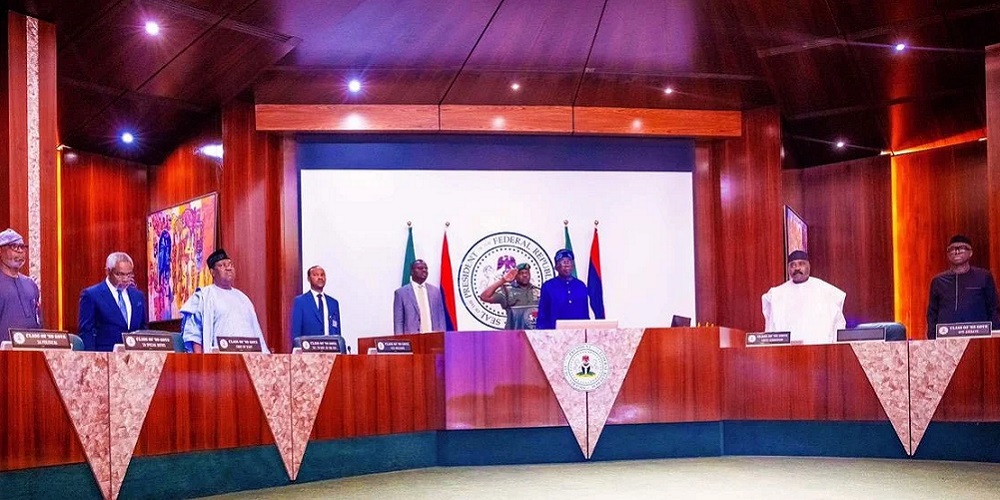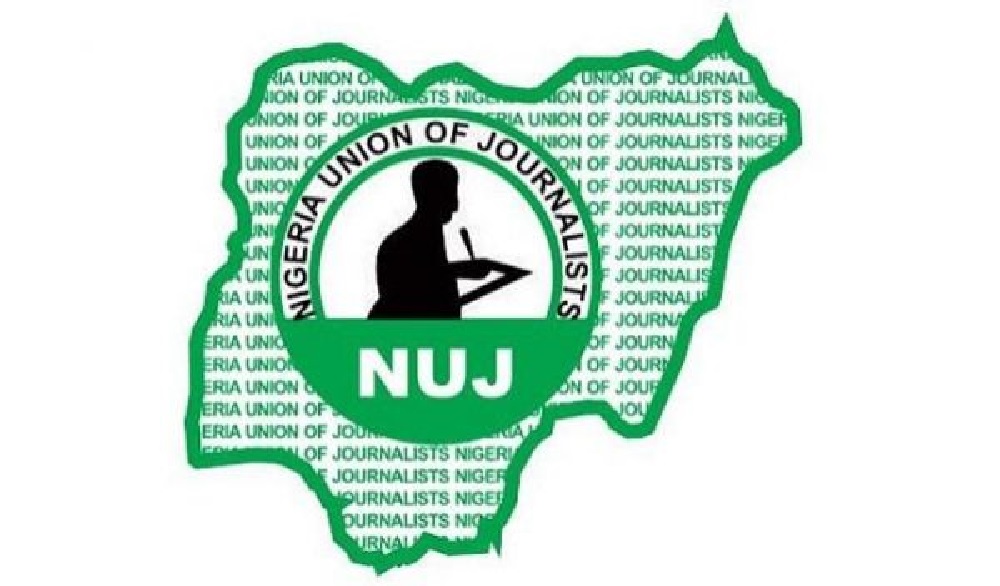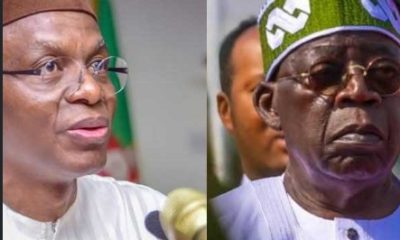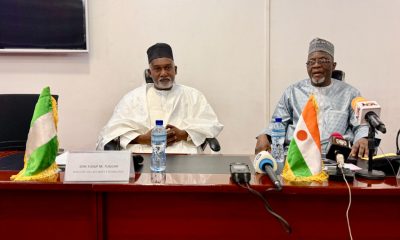News
FEC approves purchase of $1.442m arms, ammunition for NDLEA

The Federal Executive Council (FEC) has approved $1.442 million for the procurement of arms, ammunition and equipment for the National Drug Law Enforcement Agency (NDLEA) to boost its anti-narcotics operations.
The Attorney-General of the Federation and Minister of Justice, Dr Lateef Fagbemi, who disclosed this while briefing journalists at the State House, Abuja, after the FEC meeting, also informed his ministry submitted three memoranda on behalf of the NDLEA to Council.
According to Fagbemi, Council also approved N1.9 billion for the purchase of 33 CNG-compliant vehicles as well as N985 million for the procurement of two full body scanners for the Murtala Muhammed International Airport, Lagos, and the Nnamdi Azikiwe International Airport, Abuja.
He said the other two approvals were also in favour of the NDLEA aimed at making the agency’s operations smooth.
“We discussed some other items today, three items in respect of the National Drug Law Enforcement Agency, otherwise known as NDLEA. The first one is the procurement of 33 Mikano Maxus E60 motor vehicles, to boost the operation of the NDLEA at N1.9 billion.
“You will agree with me that it is important that we give support to the activities of NDLEA so the Council considered this and gave approval for the purchase of 33 Mikano vehicles and they are all CNG compliant.
“The second one is, again, purchase for the NDLEA this time is for the procurement of arms, ammunition and antiriot equipment for counter-narcotics operations for the NDLEA. This is for the sum of $1.442 million.
“The third in the series is the procurement of two units of full body scanners at both Abuja and Lagos international airports to boost the operation of the NDLEA. This is at a cost of N985 million”, the Minister said.
The FEC has approved a ban on the use of single-use plastics, also known as on-the-go plastics, in all federal ministries, agencies, and departments.
Minister of State for Environment, Iziak Salako, who disclosed this at the post-FEC briefing at the State House, explained that the move is in line with the 2022 National Policy on Plastic Waste Management and demonstrates the government’s commitment to addressing the triple crisis of climate change, pollution, and biodiversity loss.
According to the Minister the ban aims to reduce plastic waste, which is a significant contributor to flooding, ocean pollution, and human health issues.
“The Federal Ministry of Environment proposed and the Federal Executive Council approved that a ban be placed on the use of on-the-go plastics, what we know as single-use plastics, in all ministries, agencies and departments of the federal governments. This is in line with the 2022 National Policy on Plastic Waste Management.
“We must say that the discussion in EXCO was very smooth because all members of EXCO including Mr President was very enthusiastic about this ban. This ban is also in line with the commitment of Mr. President to ensure that Nigeria plays its part in ensuring that the triple crisis of climate change, pollution and biodiversity loss is frontally address.
“As you know, plastic is one of the key challenges that we face when we go to our drains and when we talk about the issue of flooding, we find out that plastic waste is heavily incriminated. We also find out that plastic pollution is a major issue in our oceans, is a major issue affecting human health affecting our environment.
While the ban is currently limited to federal government institutions, it is seen as a precursor to a nationwide ban on single-use plastics by January 2025, as outlined in the National Policy on Plastic Waste Management.
“First, let me just say categorically, again, for purposes of clarity. The ban is for federal government ministries, agencies and departments, it is not nationwide. However, this is, in a way preparatory, if you look at the National Policy on Plastic Waste Management, which was adopted in 2022, it envisaged that by January 2025, some categories of plastics will be banned in Nigeria and most of them are single-use; plastic spools, straws, PET bottles, pure water sachets, and so on and so forth.
“So what the federal government is doing is preparing the minds of Nigeria and leading by example. When you see this thing being done in the federal ministries and agencies, it will convince you that it is possible, as a matter of fact, I can tell you that in the Federal Ministry of Environment, we started the ban since January 2024 and it’s been largely”, the Minister said.
News
NUJ-FCT Unmasks Financial Scandal Under Ex-Leadership, Issues Disclaimer

…handover Ogbeche, Osadebamwen, others to EFCC for probe
Speaking during a media interaction in Abuja, the Council under the leadership of Comrade Grace Ike shared details of the inquiry conducted by a committee established by the NUJ Congress. The initiative is part of ongoing efforts to enhance organisational accountability and strengthen internal governance systems.
The five-man panel, chaired by veteran journalist, Comrade Tony Akowe, included Comrade Ndubueze Chidoka (Secretary), Comrade Akin Orimolade, Comrade Princess Ekwi Ajide, and Comrade Imam Umar.
The committee’s scope covered activities from December 2018 to October 2021, encompassing the periods of past administrations led by Emmanuel Ogbeche and Patrick Osadebamwen.
According to the committee’s documentation, critical gaps were observed in record-keeping and transitional documentation. In addition, there was limited engagement from some former officeholders during the review process. The only available financial review for the period in question reportedly presented inconsistencies requiring further attention.
The committee noted that its work was hampered by a lack of cooperation from key figures of the past administration. According to Mr Akowe, no formal handover was done, and only a limited set of documents including one audited financial report and some rental receipts was made available.
Efforts to retrieve further documentation from the former chairman, Mr Patrick Osadebamwen, proved unsuccessful. He reportedly claimed to have submitted relevant documents to the NUJ National Secretariat, which has since denied receiving any such records.
The probe uncovered several questionable financial entries and unverified expenditures:
• A total of ₦33 million was declared as rental income between 2018 and 2021, but there was no breakdown showing the names of tenants or corresponding rent periods.
• The administration claimed to have received ₦7.2 million in donations yet failed to provide details or evidence of the sources.
• ₦5.28 million was spent on salaries for four to five staff, even though no single staff member earned more than ₦25,000 monthly.
• Over ₦1.7 million was reportedly spent on electricity, ₦285,000 on DStv/GOtv subscriptions, ₦78,000 on “public relations and entertainment”, and ₦1 million on transport and accommodation—all lacking adequate justification.
• A controversial line item showed ₦14 million received as rent “in advance”, with no associated documentation to validate it.
The committee’s report concluded that there was no transparency in the management of the union’s finances during the period under review.
Following the probe report, the NUJ-FCT Congress, in its sitting on 12 April 2025, adopted a series of resolutions aimed at protecting the Union’s integrity and financial stability.
The Council issued a public disclaimer against the following individuals, who have been warned to cease parading themselves as representatives of the NUJ-FCT Council:
• Mr Emmanuel Ogbeche, currently Special Adviser to the Governor of Cross River State.
• Mr Patrick Osadebamwen, immediate past Chairman and journalist with the Nigerian Tribune.
• Mr Ochiaka Ugwu, former Secretary of the Council and staff of People’s Daily.
In addition, Mrs Gloria Essien has been cautioned against representing the Council at the Nigeria Labour Congress (NLC), as she no longer holds any official position within the NUJ-FCT.
The union also called on UBA Bank to freeze the NUJ-FCT Council’s accounts still under the control of former signatories (Account Nos: 1022765326, 1014057659, and Dollar Account: 3002941904), pending a full transition to the current leadership.
Furthermore, the NUJ-FCT will:
• Publish a formal disclaimer in national dailies.
• Notify the employers of the former officials about the resolutions.
• Alert government institutions, corporate bodies, and the general public not to engage with the aforementioned individuals on behalf of the NUJ-FCT Council.
The Council’s Secretary, Mr Jide Oyekunle, who anchored the press briefing, reiterated that the probe’s findings and the resolutions reflect the collective will of the NUJ-FCT Congress and the determination to protect members’ interests.
News
Finally , Lagos Court frees Quadri, young Nigerian who stood before Obi’s convoy in viral photo

The Apapa Magistrate Court, Court 9 sitting at Orege, Ajegunle – Sikiru Adagun Courthouse, has discharged and acquitted Alabi Quadri, the young Nigerian who became a national symbol of courage during the 2023 general elections, for standing boldly in front of the convoy of then-Labour Party presidential candidate Peter Obi.
He was discharged and acquitted of conspiracy to commit felony and armed robbery.
The court held that he has no case to answer.
Quadri was brought to court on Thursday, April 17, 2025, after spending months in Kirikiri Prison, Lagos.
The Nigerian Correctional Service produced Quadri at the Apapa Magistrate Court, located at Orege, Ajegunle—Sikiru Adagun Courthouse (Court No. 9).
Quadri’s case was initially slated for a hearing on April 28, 2025.
However, human rights lawyer and activist Inibehe Effiong had revealed that both he and the Director of Public Prosecutions (DPP) requested that the date be moved forward, and the court granted the application.
Quadri gained widespread attention after a viral video showed him, a teenage boy at the time, fearlessly standing before Peter Obi’s campaign convoy—a moment many Nigerians interpreted as a symbol of youthful defiance and hope during a tense election period.
The media reported that Effiong revealed that Alabi’s recent painful descent into the Nigerian prison system was not due to any major crime but rather a result of prolonged malice and resentment harboured by some self-acclaimed ‘area boys’ (thugs) in his neighbourhood.
According to the lawyer, these individuals felt entitled to a portion of the unexpected attention and goodwill, including financial support, that Alabi received following his moment in the spotlight during the 2023 presidential campaign.
Effiong, who recently visited the Apapa Magisterial Court in Lagos alongside Alabi’s mother and legal colleagues, stated that Alabi’s journey to Kirikiri prison was not only heartbreaking but appeared to be the outcome of a vendetta fuelled by local ‘area boys’ who felt entitled to the financial support Alabi received after his viral moment.
Effiong revealed that Alabi was abducted in January near his home while returning from work by the ‘area boys’ who had been threatening him.
They allegedly took him to Amukoko Police Station (popularly known as Pako Police Station) and accused him of being involved in street fights.
However, Alabi was then arraigned before a Magistrate Court along with four other individuals, said to be complete strangers to him, on allegations of conspiracy to commit armed robbery with cutlasses.
According to the charge sheet, the alleged victims were robbed of N579,000, comprising cash and four mobile phones.
Effiong also emphasised that despite being a minor, Alabi had been detained with adults at Kirikiri since January, pending legal advice from the Lagos State Directorate of Public Prosecutions (DPP).
News
Lawmaker Slams NBA Over Rivers Crisis, Demands Return of N300m

-

 News4 hours ago
News4 hours agoBREAKING: Unknown gunmen reportedly storm Senator Natasha’s family residence
-

 News13 hours ago
News13 hours ago“How my father escaped assassination” – Bishop Oyedepo’s daughter
-

 News7 hours ago
News7 hours agoSnub story on removal of Rivers Sole Administrator, it’s FAKE-Chief Registrar
-

 News13 hours ago
News13 hours agoFG expresses sympathy for CBEX victims, urges a united effort to combat Ponzi schemes
-

 News6 hours ago
News6 hours agoSAD! Again, Alleged Herdsmen Attack Three Benue Communities
-

 News19 hours ago
News19 hours agoEl-Rufai labels Tinubu’s government ‘worst in Nigeria’s history’
-

 News13 hours ago
News13 hours agoWoman tragically lost her life after attempting to flee through glass door during alleged incident of domestic violence
-

 News19 hours ago
News19 hours agoNigeria-Niger Vow to Strengthen Ties, Tackle Border Security






